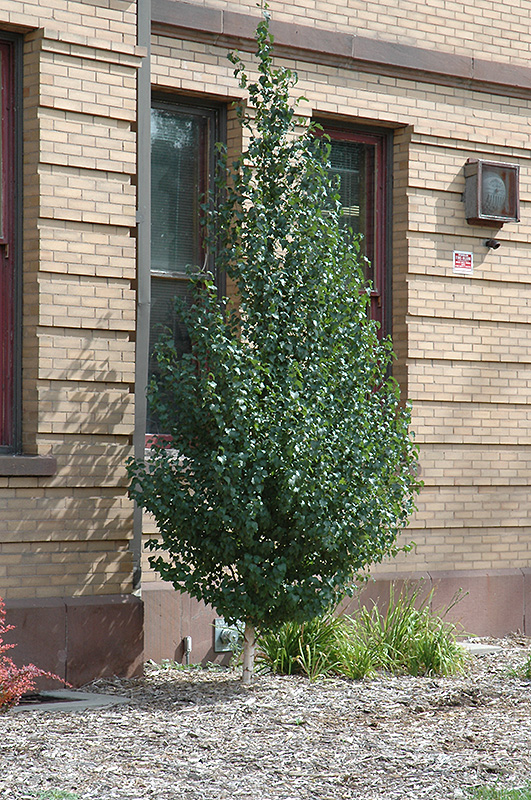Plant Search Tool
This is a 3rd party Knowledgebase and does not reflect actual stock
Dakota Pinnacle Japanese White Birch
Betula platyphylla 'Fargo'
Height: 35 feet
Spread: 10 feet
Sunlight:
![]()
![]()
Hardiness Zone: 3b
Description:
A fantastic new introduction from North Dakota that's hardier than the species; smooth white bark, spire-like columnar habit of growth, quite dense, great for skyline articulation; insect resistant and drought tolerant
Ornamental Features
Dakota Pinnacle Japanese White Birch is primarily valued in the landscape for its rigidly columnar form. It has dark green deciduous foliage. The pointy leaves turn yellow in fall. The smooth white bark is extremely showy and adds significant winter interest.
Landscape Attributes
Dakota Pinnacle Japanese White Birch is a dense deciduous tree with a strong central leader and a narrowly upright and columnar growth habit. Its relatively fine texture sets it apart from other landscape plants with less refined foliage.
This is a relatively low maintenance tree, and should only be pruned in summer after the leaves have fully developed, as it may 'bleed' sap if pruned in late winter or early spring. Deer don't particularly care for this plant and will usually leave it alone in favor of tastier treats. It has no significant negative characteristics.
Dakota Pinnacle Japanese White Birch is recommended for the following landscape applications;
- Accent
- Vertical Accent
Planting & Growing
Dakota Pinnacle Japanese White Birch will grow to be about 35 feet tall at maturity, with a spread of 10 feet. It has a low canopy with a typical clearance of 3 feet from the ground, and should not be planted underneath power lines. It grows at a medium rate, and under ideal conditions can be expected to live for 40 years or more.
This tree does best in full sun to partial shade. It is very adaptable to both dry and moist locations, and should do just fine under average home landscape conditions. It is not particular as to soil type or pH. It is highly tolerant of urban pollution and will even thrive in inner city environments. Consider applying a thick mulch around the root zone in winter to protect it in exposed locations or colder microclimates. This is a selected variety of a species not originally from North America.







